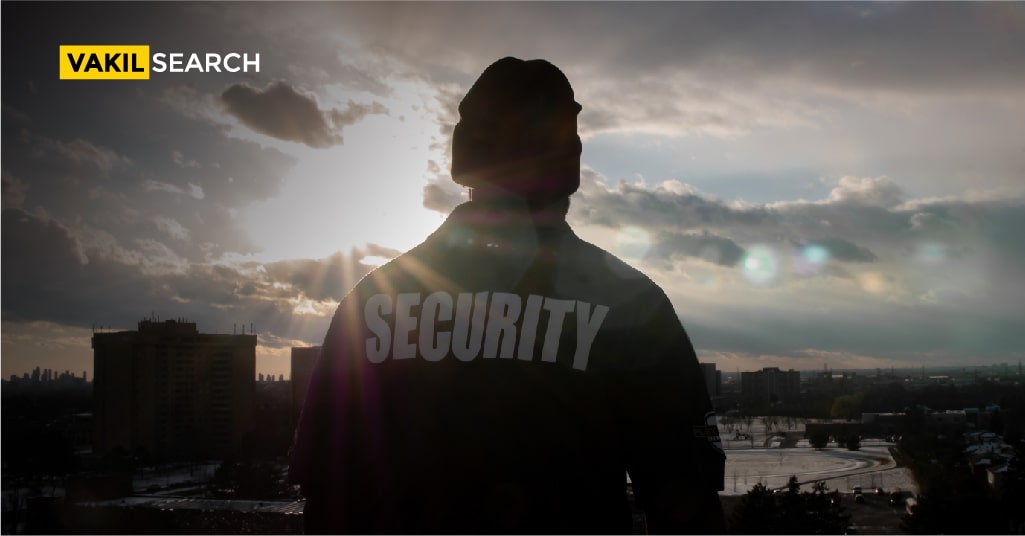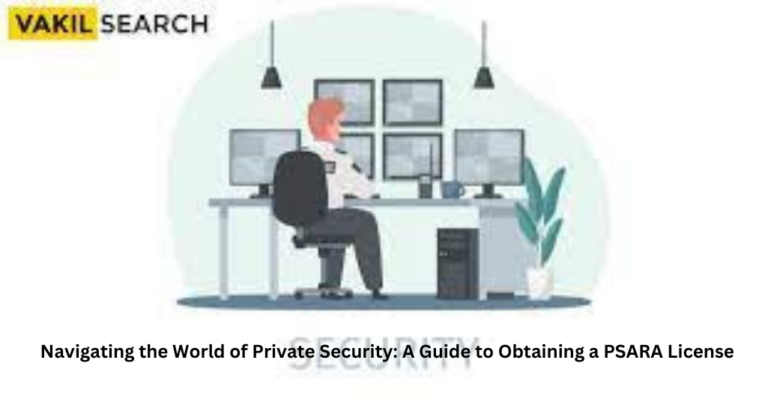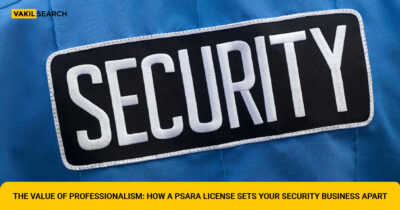In this article, we shall take a look at the lesser known PSARA Act, 2005, and its key features.
India is a country rich in manpower. And the number of unemployed skilled labour is something that is of immense concern from the point of severe underutilisation of resources. This gap in the market has led to the rise of several manpower aggregators who sign up such skilled but unemployed people and utilise them contractually en masse wherever required.
And the most common avenue where such services are utilised are for security purposes. Starting from basic residential security to security of VIPs, these agencies specialise in a whole array of security services including crowd management and personal security.
But being in the business of security requires personnel to be equipped with defensive capabilities depending on the nature and the seriousness of the security requirement. It is for this reason certain legislations were brought in to regulate these security companies. One such legislation is the Private Security Agencies (Regulation) Act. This article details about obtaining get PSARA License in India.
PSARA has been introduced to ensure credibility among consultancy services and new business ventures who provide security services to various industries. As per this act, people planning to open their own security firm have to make an application under the provisions and as per the regulations of the PSARA before starting its operations.
All such security agencies who work in India are regulated by the PSARA Act 2005, and each state in India has their own PSARA Guidelines which are based on the Central Act. Consequently, most states have their own set of rules regarding the opening of new private security agencies and the training of the personnel who work in such agencies. Such licences are granted by the police and law and order authorities either at the district or state level. The application forms are now available on the PSARA portal. This website also contains all the information regarding the starting of security agencies and hence has made access to such information more straightforward than ever before. Let’s take a look at how to go about obtaining the PSARA License in India.
A private security agency varies according to the model of their business organisation, and this primarily depends on scale, finance and initial capital, liabilities and stock listing. The Private Security Agencies (Regulation) Act 2005 is valid all over India except in Jammu & Kashmir and has been in existence since June 2005.
They may be of the following types:
- Sole proprietorship
- Partnership Firm
- Limited Liability Partnership
- Private Limited
- NGO
After incorporating the entity, the concerned parties can then file for a licence under PSARA. The application has to be made to the Controlling Authority (C.A) of the respective state. Such authority may be either a department under the Home ministry or a separate entity of its own.
The PSARA act is an extended arm of the Law and Order department of the state and functions as a civil defence body of the state. Due to their importance within the state’s framework, they require a large number of registrations and applications for obtaining the licence.
State Government Regulations
Each State Government has an official ranked either above or the same as Joint Secretary appointed as the Controlling Authority(CA) for the state. The CA has the right to issue, regulate, renew and cancel licences of security agencies. A private agency, therefore, needs permission from the CA to function and provide security to the state. Also, the Act gives the State Government the power to bring to action rules governing the carrying out of the provisions of the Act.
Eligibility For PSARA Registration
- Only an agency or association of Indian origin can try for this licence. Also, a majority of the shareholders must be Indian.
- The company must have a clean chit and should not have gotten booked by any court in the past. If it is in the name of an individual he or she must not have gotten imprisoned for longer than two years.
- The individual must not be the accused in any case related to the formation or management of a company.
- The individual must not have gotten dismissed from government service due to misconduct.
- The individual cannot have ties to any organisation that is banned or prohibited.
- No agency can provide security outside India without obtaining prior permission from the Controlling Authority, which in turn must consult the Central Government before handing out such consent.
- All agencies are also expected to prefer candidates who have served any one of these departments while recruiting guards:
- Navy
- Army
- Air Force
- Home Guards
- Police
After receiving an application, the Controlling Authority will process it and either grant or refuse the licence within sixty days. Once a permit has been issued, the agency can function using it for five years after which it can be for another five years by paying the required fees.
After obtaining the PSARA License in India, the company must begin working within six months of getting the permit and failure to do so might result in an investigation.
Eligibility For Becoming A Security Guard
The following is the criteria for a person to be eligible to bear arms as a security guard in an agency with a PSARA licence
- Citizen of India
- Over eighteen years of age and below sixty-five years
- Non-objectionable character and antecedents
- Passed the security training successfully
- Fulfils physical standards
- Not convicted by a court
- Not dismissed for misconduct from any Government institution
With concerns about terrorism increasing exponentially, the demand for private security services is on the rise and the industry has grown to supply the services as required. As awareness increases on the side of both businesses and consumers alike, knowing how to start a security company proves to be a great business opportunity for entrepreneurs. However, doing so requires training and licensing, as well as a lot of paperwork; all of which has been covered above.
How To Get a PSARA License In India?
Let us now examine the procedure of acquiring a PSARA licence in detail.
The documents needed for the licence are as follows:
- PAN
- GST forms
- ESI and EPF Account details
- Papers showing Registration of the company under Shops & Establishment Act
- Labour licence
- MSME/SME Registrations
- Certificate of Security Training from SKSDC or DGR
- Proof of ownership of the place of business
- A LOGO for the agency
- Identity Card for the employees
- Associations with Controlling Authority nominated bodies
- Associations with Hospitals
- Details of all the employees
- Arms Licences
- Character verification of employees
- Training Certificate for employees
- Uniform pattern including caps and badges with 4 postcard size photographs of the uniform
All Documents other than the affidavit must be attested by a public notary and the affidavit must be attested by an Executive Magistrate
Govt Fee is based on the number of regions the agency intends to operate within:
- For 1 District: INR 5,000
- Between 2 to 5 Districts: INR 10,000
- Entire state: INR 25,000
Records To Be Maintained
Each PSA must also maintain the following documents:-
- Wages Slip
- Register of Deductions
- Register of Fines
- Register of Advances
- Employment Card
- Register of Overtime
Conclusion
As can be inferred from above, the procedure and the formalities involved in getting a PSARA licence can be extensive and disorienting without the right kind of guidance and counsel. Apart from the technical aspects of the application forms and licences, there is also the need to know first hand the inner workings of authorities.
And so it is always advisable to engage an expert or a professional with ample experience in getting such applications processed. If you have any further queries with regard to any other regulatory matters or require assistance with any legal issue, get in touch with us and our team of experts will guide you with your concerns.
Also, Read:









